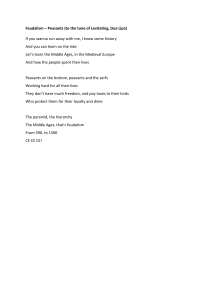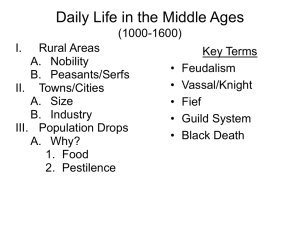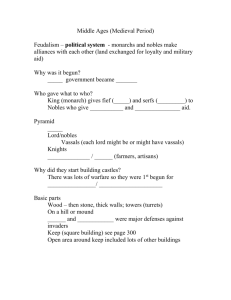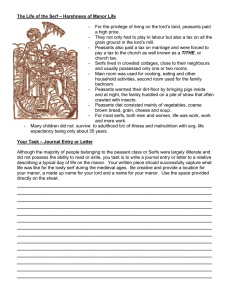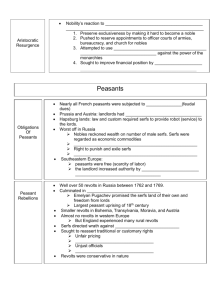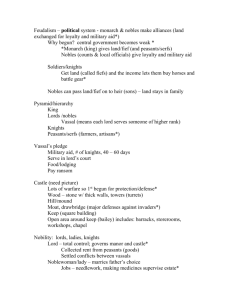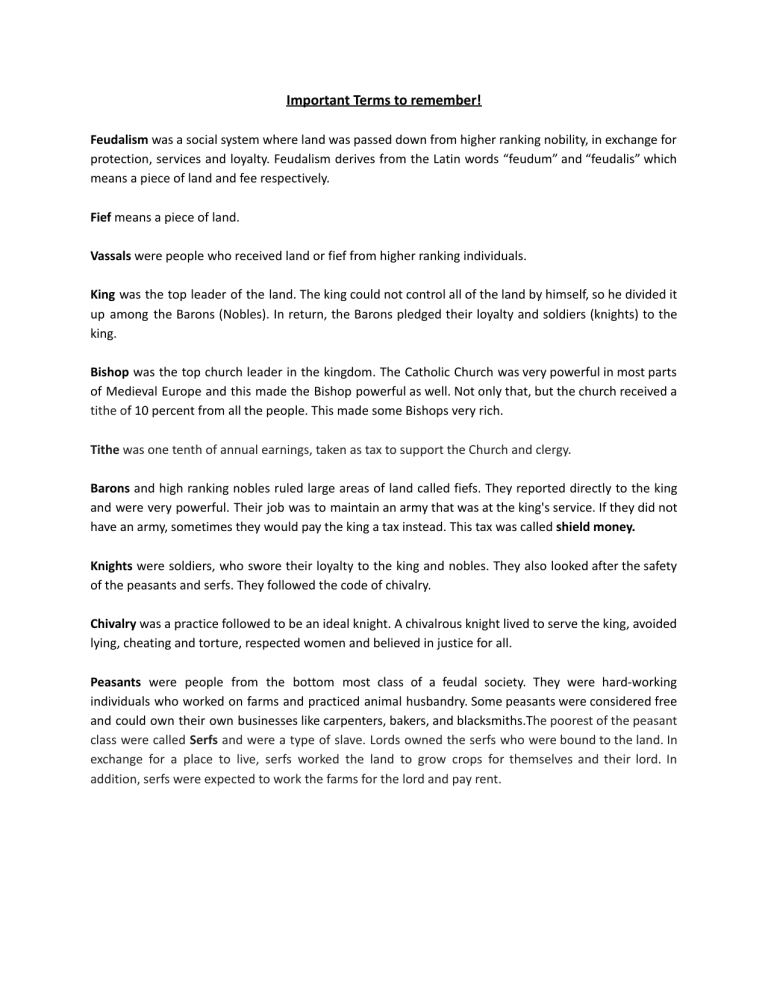
Important Terms to remember! Feudalism was a social system where land was passed down from higher ranking nobility, in exchange for protection, services and loyalty. Feudalism derives from the Latin words “feudum” and “feudalis” which means a piece of land and fee respectively. Fief means a piece of land. Vassals were people who received land or fief from higher ranking individuals. King was the top leader of the land. The king could not control all of the land by himself, so he divided it up among the Barons (Nobles). In return, the Barons pledged their loyalty and soldiers (knights) to the king. Bishop was the top church leader in the kingdom. The Catholic Church was very powerful in most parts of Medieval Europe and this made the Bishop powerful as well. Not only that, but the church received a tithe of 10 percent from all the people. This made some Bishops very rich. Tithe was one tenth of annual earnings, taken as tax to support the Church and clergy. Barons and high ranking nobles ruled large areas of land called fiefs. They reported directly to the king and were very powerful. Their job was to maintain an army that was at the king's service. If they did not have an army, sometimes they would pay the king a tax instead. This tax was called shield money. Knights were soldiers, who swore their loyalty to the king and nobles. They also looked after the safety of the peasants and serfs. They followed the code of chivalry. Chivalry was a practice followed to be an ideal knight. A chivalrous knight lived to serve the king, avoided lying, cheating and torture, respected women and believed in justice for all. Peasants were people from the bottom most class of a feudal society. They were hard-working individuals who worked on farms and practiced animal husbandry. Some peasants were considered free and could own their own businesses like carpenters, bakers, and blacksmiths.The poorest of the peasant class were called Serfs and were a type of slave. Lords owned the serfs who were bound to the land. In exchange for a place to live, serfs worked the land to grow crops for themselves and their lord. In addition, serfs were expected to work the farms for the lord and pay rent.
